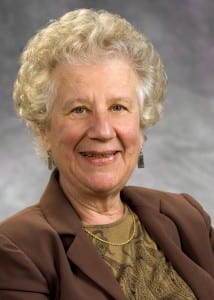By Andrew Cohen
If recent history is any indication, Berkeley Law faculty members may soon influence more landmark rulings when the Supreme Court begins its new term this week. Here are a few whose work the court noted in recent decisions.
Targeting solitary confinement

Research by Professor Jonathan Simon ’87 caught the attention of Justice Anthony Kennedy, whose concurring opinion in Davis v. Ayala urged courts to consider more closely the solitary confinement of prisoners. Noting that penology and psychology experts “continue to offer essential information and analysis,” Kennedy cited Simon’s The Sage Handbook of Punishment and Society (2013, co-author Richard Sparks).
“There are indications of a new and growing awareness in the broader public of the subject of corrections and of solitary confinement in particular,” Kennedy wrote. He suggested that once judges consider the broader consequences of punishments, practices like solitary confinement—which have survived lower court judicial scrutiny—may be revealed as “cruel and unusual.”
Simon called the opinion “a startling indicator that the judiciary may be expanding its review to address the challenge of over-punishment in our society. It’s striking that within a few months of this opinion, California settled a class action challenge to prolonged solitary confinement that was scheduled for trial this December.”
A prominent criminal justice expert, Simon focuses largely on the social causes, consequences, and meanings of excess punishment in the U.S. “Because these questions operate generally outside the purview of courts, I’ve never expected to be cited by the Supreme Court,” he said. “I’m deeply gratified because Justice Kennedy’s remarkable concurrence called on judges to take punishment more seriously in precisely these ways.”
Achieving marriage equality

For decades, Joan Hollinger has been a leading advocate for reform on behalf of children raised by gay and lesbian parents. After coordinating amicus briefs in more than 20 cases on the subject, she co-wrote another brief filed by family law scholars in Obergefell v. Hodges—which validated same-sex marriage nationwide.
Justice Kennedy’s majority opinion in the landmark ruling incorporated many of the brief’s claims—and used virtually identical language when discussing the harms children suffer when their same-sex parents cannot marry. To wit:
Hollinger’s brief: “An ability, desire, or promise to procreate is not, and has never been, a prerequisite for a valid marriage in any state.” Kennedy’s opinion: “An ability, desire, or promise to procreate is not and has not been a prerequisite for a valid marriage in any State.” Hollinger’s brief: “No state has ever limited marriage to couples who can demonstrate that they have procreative capacity and desire.” Kennedy’s opinion: “It cannot be said the Court or the States have conditioned the right to marry on the capacity or commitment to procreate.”
In recent years, Hollinger’s briefs have been routinely cited or paraphrased in U.S. Court of Appeals rulings on same-sex marriage. The final section of the Obergefell brief, she said, showed that Supreme Court decisions extending equal protection to non-marital children “establish that they should not be punished for the circumstances of their birth or the behavior of their parents.”
Calling out double taxation

An amicus brief co-authored by Professor Alan Auerbach was cited multiple times in Comptroller of the Treasury of Maryland v. Brian Wynne. The court ruled that Maryland’s personal income tax scheme violates the Constitution by fully taxing income its residents earn—inside and outside the state—without providing full credit against income taxes they pay to other states.
The majority opinion relied on the brief’s analysis in calling the tax structure “inherently discriminatory.” The 5-4 verdict was rare in that it did not follow the court’s usual political alignment—Justices Alito, Roberts, Kennedy, Breyer, and Sotomayor formed the majority.
“This is clearly an interference with interstate commerce, acting as a tariff would against cross-state activities,” Auerbach said. “Maryland’s system violated the ‘internal consistency’ test the court has applied in other interstate tax cases—a test which itself is relatively weak. By other approaches economists find compelling, the system was even more clearly a hindrance to interstate commerce.”
One of Auerbach’s former students, economist Alan Viard, enlisted his help on the brief. Auerbach called it “extremely gratifying” to have the court rely so heavily on their scholarship in deciding the case.
Advocating for fair housing

In June, the court ruled that the Fair Housing Act bars not only policies aimed at perpetuating racial discrimination and segregation, but also “race neutral” policies that have the same effect. Richard Rothstein co-authored an amicus brief, submitted by UC Berkeley’s Haas Institute for a Fair and Inclusive Society, that the court leaned on in Texas Dept. of Housing and Community Affairs v. The Inclusive Communities Project.
Plaintiffs claimed that federal tax subsidies for low- and moderate-income housing in Dallas reinforced segregation—as data showed that less than five percent of such units were in white-majority neighborhoods. “A redevelopment project that displaces African Americans can violate the Fair Housing Act if no provision is made for relocating displaced residents into integrated middle-class communities nearby,” Rothstein said.
The brief described how federal public housing programs have increasingly separated African Americans from whites, and how federal home finance programs underwrote the creation of all-white suburbs. Kennedy’s majority opinion cited the brief’s historical section in rejecting any housing policy that causes a disparate impact—based on race, color, religion, national origin, gender, disability, or family status—where reasonable alternative policies to achieve the non-discriminatory goal are available.
“Since the Fair Housing Act was enacted in 1968, public policies have maintained and often exacerbated segregation and concentrated poverty in many U.S. neighborhoods,” Rothstein said. “By affirming the disparate impact standard, the court has cleared a path for challenging the many exclusionary controls that sustain those patterns.”